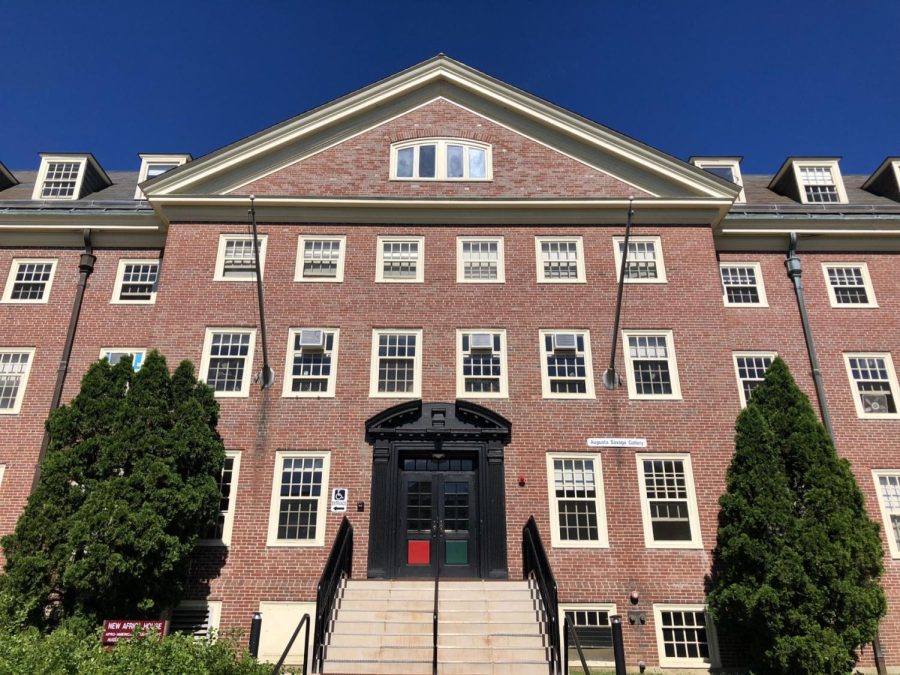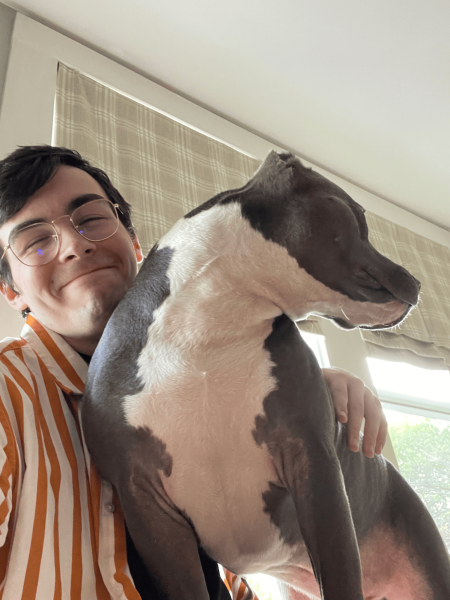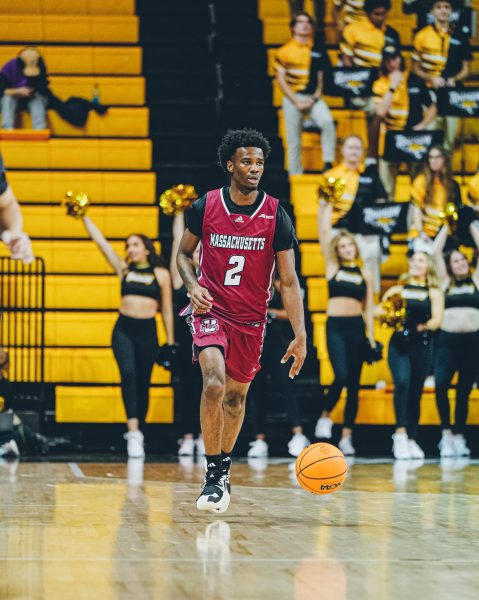Afro-Am Students Demand Change
In the spirit of past student movements, students of the illustrious W.E.B. Du Bois Department of African-American Studies make their voices and demand the university make changes.
To the Editor:
We write as students of the W. E. B. Du Bois Department of Afro-American Studies at UMass Amherst in response to the anti-black emails as well as the excessive white terror experienced by Black people on this campus. This is something that is experienced with a seasonal regularity among Black students at UMass: it seems that every fall we are asked to both endure and respond to racist assaults on our mere presence here. Black students deserve more. Changes are being made without consulting us and without university-wide efforts to gather a sense of what Black students actually want and need.
We are disturbed by the absence of mention of the W. E. B. Du Bois Department of Afro-American Studies in Chancellor Subbaswamy’s email sent out to the university and the press. We want to remind the university that this campus houses a historic department of Black Studies, one of the very first in the nation, and one borne out of student protests and demands for a curriculum and program that represented and served Black students on campus. The Du Bois Department continues to do the work of supporting Black students and educating UMass’ student population about the history of blackness and anti-black racism in the modern world; it does this with minimal faculty members. During the fall of 1968, 100 Black students protested the beating of their fellow Black community member from Springfield by a group of white UMass students. On November 8th 1968, Black students blared their 21 demands over a bull-horn and declared their fight against the administration by proclaiming they “want yes answers on all points by Monday noon, or [they] be back with bigger and better things” (Boston Globe, 1968). We found this source in the Special Collections and University Archives at the Du Bois Library. We honor their words and want to uplift their demands, especially their demand that AfroAm would remain in Mills House (currently New Africa House).
The Black organizers of the era were able to shift a dormitory into a space that now houses countless AfroAm classes, the Center for Women and Community, the Shirley Graham Du Bois reading room, and the Augusta Savage Gallery. Space in the building has been given away to other university units and offices over time. We wonder how these Black organizers would feel knowing the ways in which NAH has been strategically mistreated and under maintained, and how resources have been directed away from the department over time.
Since no one has asked us what we want, we thought we would state it in this venue:
First, we want a direct investment in Black Students on campus.
Second, we want material investment in the Department of Afro-American Studies.
Third, we want space that will help us feel safe and supported.
The Du Bois Department, like what has been offered to the Center for Racial Justice, should receive economic support from the administration and there should be more tenured professors of color within the department. There should be spaces to create and foster community within NAH and the building should be a safe haven for both students of color and their clubs and organizations. There is an evident disregard by UMass of the impact and sociopolitical labor being added to the field of Black Studies. Professors and students are constantly forced to move and act from a point of scarcity. When acts of white terror ensue, we are asked to educate and support the entirety of the UMass community when we can’t even fully support Black students and Afroam majors because of the lack of adequate staffing in the department.
We want to revisit the communal practices and spaces within New Africa House during the 20th century. From Caribbean dining to fresh haircuts in the basement, we want resources and space that will allow us to build, foster, and sustain a community due to the systemic erasure of New Africa House by the administration. The fourth floor of New Africa House, which currently operates as a swing space, should be returned to the Department of Afro-American Studies and turned into a student space. We want it to be a space for Black students to be able to study and work. Given all that we are asked to endure and respond to in the campus culture, it is difficult to focus on our actual studies, the reason why we are here.
Finally, to Black students on this campus: we see you, we hear you, we affirm your experiences on this campus. We want to collaborate and redefine how we can actively be in solidarity with each other.
In solidarity,
Students of the W. E. B. Du Bois Department of Afro-American Studies, UMass Amherst











